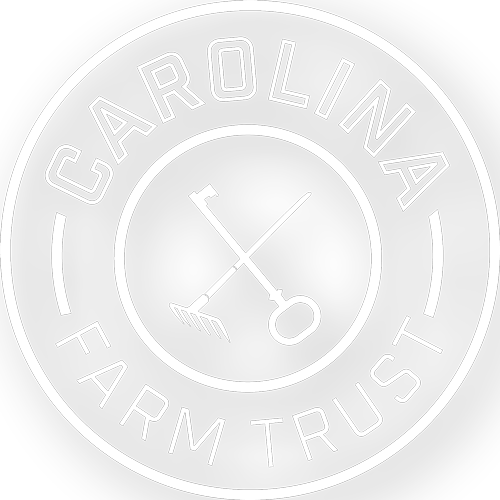Food insecurity is a global crisis that reaches far beyond the empty stomachs it creates. It’s about the trauma of uncertainty—parents not knowing if they can provide dinner for their children, seniors rationing their meals to make ends meet, and individuals facing long-term physical and emotional harm. In 2023, the USDA reported that 47 million people in the U.S., including 14 million children, lived in food-insecure households. Globally, the World Health Organization estimates that 864 million people face hunger.
The effects of food insecurity ripple through every aspect of life, influencing health, mental well-being, and financial stability. Let’s dig deeper into the profound impacts of this crisis and explore the steps needed to create a fairer, healthier food system.
Health Impacts: Chronic Conditions and Poor Nutrition
Food insecurity doesn’t just mean fewer meals; it often means eating the wrong kinds of meals. Families struggling to afford food are more likely to consume cheaper, calorie-dense options that lack essential nutrients.
- Chronic Illnesses: According to National Institute of Minority Health and Health Disparities, individuals in food-insecure households are at higher risk for chronic illnesses such as diabetes, hypertension, and heart disease.
- Childhood Development: A study by Feeding America highlights that children in food-insecure homes are more likely to suffer from iron deficiency, developmental delays, and behavioral problems.
- Healthcare Costs: Poor nutrition leads to increased reliance on medical care, further burdening already strained health systems. A report by the USDA estimates that diet-related illnesses add $71 billion annually to U.S. healthcare costs.
Mental Health Effects: The Weight of Uncertainty
The psychological toll of food insecurity is devastating and often invisible. The constant stress of not knowing where the next meal will come from can lead to anxiety, depression, and feelings of shame.
- Parental Stress: Parents often sacrifice their own meals to feed their children, leading to malnutrition and heightened stress levels. The American Psychological Association has linked parental stress due to food insecurity to poor family dynamics and mental health struggles.
- Childhood Anxiety: For children, the stigma of food insecurity in schools and communities can lead to low self-esteem and social withdrawal. Food insecurity is directly tied to increase in childhood anxiety and depression.
- Generational Trauma: The cycle of food insecurity perpetuates stress across generations, trapping families in a cycle of poor mental health and limited opportunities.
Economic Burden: The Cost of Hunger
Families facing food insecurity are often forced to make heartbreaking choices, like deciding between buying food and paying for rent, utilities, or medical care.
The impact on the workforce is profound, as individuals without reliable access to nutritious food may struggle with fatigue and health problems, which can lower productivity and increase absenteeism. Children in food-insecure households also face challenges, as they are more likely to miss school or have difficulty concentrating, which can hinder their education and limit future opportunities.
These hidden costs ripple through communities, affecting healthcare systems, educational outcomes, and economic growth. Addressing food insecurity isn’t just about feeding people—it’s about creating stronger, healthier, and more resilient communities for everyone.
Addressing Food Insecurity with Local Solutions
At Carolina Farm Trust, we believe that solving food insecurity requires addressing its root causes, not just its symptoms. Through our initiatives, we aim to create local food systems that prioritize access, equity, and sustainability.
- CFT Market: Our market in West Charlotte provides fresh, affordable produce to underserved neighborhoods, while supporting local farmers and reducing food miles.
- Urban Farm Network: By transforming unused urban spaces into thriving farms, we are bringing fresh, nutritious food directly to communities in need.
- Food Is Life Program: This initiative combines nutrition education with access to healthy meals, empowering families to make informed food choices.
Imagine a future where every community has access to locally grown food. This isn’t just a vision—it’s a necessity. Locally sourced food reduces the 19% of global food-related emissions caused by transportation and strengthens regional economies.
Food Deserts: A Barrier to Equity
According to the USDA, 40.5 million Americans live in food deserts—areas without access to affordable, nutritious food. These areas disproportionately affect low-income neighborhoods and communities of color, exacerbating existing inequalities.
Food deserts are not just geographical issues; they are symptoms of systemic inequities in infrastructure, policy, and economic opportunities. Addressing them requires holistic solutions, such as investing in urban agriculture, supporting small farmers, and ensuring equitable food distribution networks.
In these areas, the lack of nutritious food leads to higher rates of diet-related illnesses and contributes to cycles of poverty. Transforming food deserts into hubs of fresh, local food is a critical step toward building healthier, more resilient communities.
A Call to Action
Ending food insecurity is a shared responsibility. Together, we can create a world where no one has to choose between feeding their family and paying rent. Carolina Farm Trust invites you to join us in this mission.
Here’s how you can help:
- Donate: Your contributions fund programs that address food deserts, support local farmers, and provide healthy meals to those in need.
- Volunteer: Help us grow urban farms, distribute fresh food, and educate communities about sustainable practices.
- Advocate: Use your voice to support policies that prioritize food equity and sustainability.
No one should have to face the physical, emotional, or economic toll of food insecurity. Together, we can create a future where everyone has access to the nourishment they need to thrive.
Join us today. Donate, volunteer, or spread the word. Let’s build a food system that works for all.


